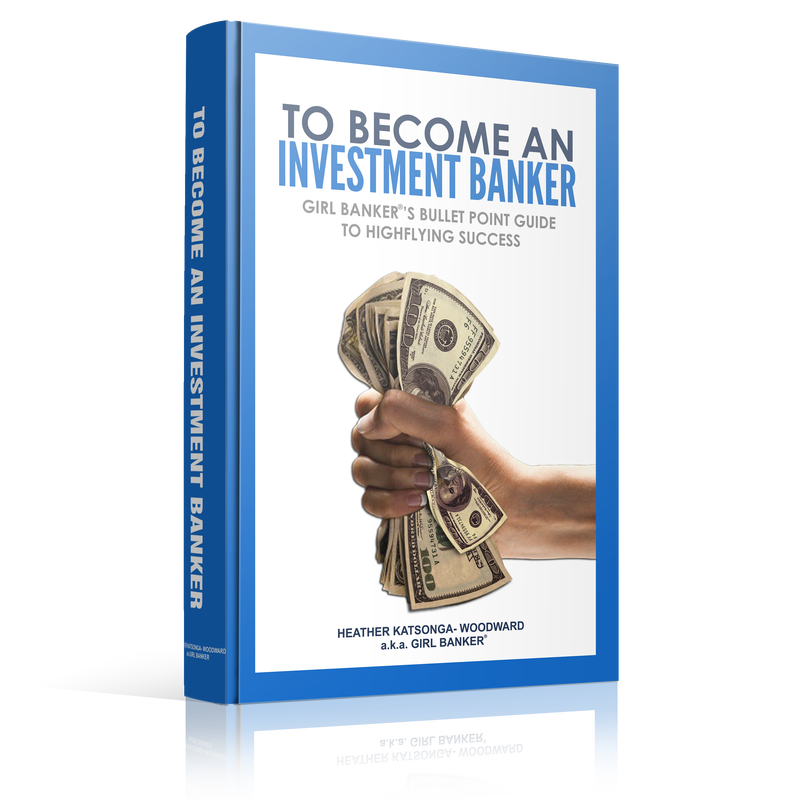 by Girl Banker Listen to the iTunes podcast instead. These are the eight things that will get you a job in investment banking. I believe having seven out of these eight helped me get into Goldman Sachs as a newbie analyst. 1. Gain knowledge Read the news! At first you might feel like it’s a waste of time especially if you’re not interviewing yet but as time passes you’ll realize that some knowledge just sticks. Without a shadow of doubt, if you spend 20-30 minutes per day on financial press, your overall knowledge and feel for the industry will start to become well-rounded. 2. Come top of the Class or Course If you came top in any class or course - highlight it, it means you’re smart; smart = hard working (normally). In my second year in university, I came 5th in the Econometrics paper – you best believe that I brought that up interviews. Econometrics is hard and to come 5th out of about 150 people in a University of Cambridge class is the sort stuff interviewers are going to remember afterwards. 3. Be an Achiever - prizes, awards and scholarships Even if you’re not top of a class, any major prizes, awards and scholarships must be revealed when the opportunity arises. This sort of stuff shows that you are an achiever, bankers love to work with and be associated with high performers. 4. Be a Team Captain If you are captain of any sporting teams - don't forget to bring it up; out of any other credentials you might have, this shows you are popular and hence personable the most. Especially at the secondary school level, to be awarded the role of captain you need to be liked by the teacher and the people you will be in charge of.  5. High/school or College Start-up If you have ever started a business, especially if it did well - mention it; starting a business or anything else shows that you have initiative and superior time-management skills. 6. Be the Linguist If you can speak several useful languages mention it; it’s impressive and it means you can be presented to a wide variety of clients. One time a VP of mine went to talk to someone and when he came back it wasn't the project we were working on at the forefront of his mind, he said, “Tiana is amazing, I was at her desk for 30 minutes and in that time four different people came to her desk with problems and she spoke to all of them in different languages”. She was fluent in Spanish, French, Portuguese and English. 7. Network and Get Contacts Look for events related to investment banking. If there aren’t any or enough at your own university make friends with people at nearby universities that can invite you to their banking events. 8. Get some work experience I have left this until last because many people applying to banking for the first time frequently do not have any work experience; sometimes they feel as though their work experience isn’t relevant. Mention whatever experience you have anyway even if it's a newspaper-round, there are likely some transferable skills e.g. a newspaper-round requires you to get up earlier and be more organised than your friends. The most crucial work experience is an internship the year before you graduate. Why then? Because if you impress the bank they will offer you a job that starts the moment you graduate. This means you can go back to your last year of university with peace of mind. You’ll be secure in the knowledge that there’s a job waiting for you at the end and you can just focus on your studies. Hope this helps! Peace and chicken grease, Heather
0 Comments
Leave a Reply. |
Girl Banker®I created my investment banking blog in 2012 as soon as I resigned from i-banking & published my book, To Become An Investment Banker.
Initially published at girlbanker.com, all posts were later subsumed into my personal website under katsonga.com/GirlBanker. With 7 years of front office i-banking experience from Goldman Sachs and HSBC, in both classic IBD (corporate finance) and Derivatives (DCM / FICC), the aim of GirlBanker.com was to make it as straight-forward as possible to get into a top tier investment bank. I'm also a CFA survivor having passed all three levels on the first attempt within 18 months - the shortest time possible. Categories
All
Archives
August 2017
|
Heather Katsonga-Woodward, a massive personal finance fanatic.
** All views expressed are my own and not those of any employer, past or present. ** Please get professional advice before re-arranging your personal finances.

 RSS Feed
RSS Feed





